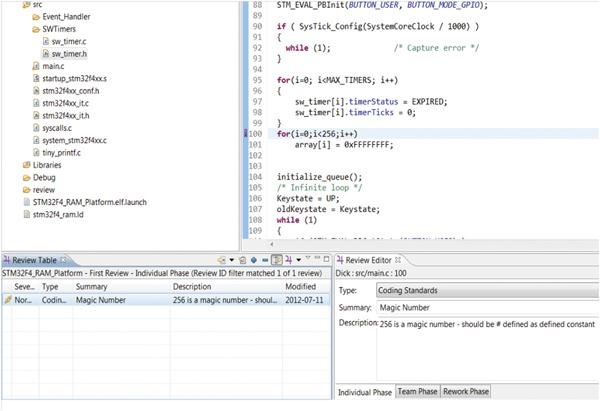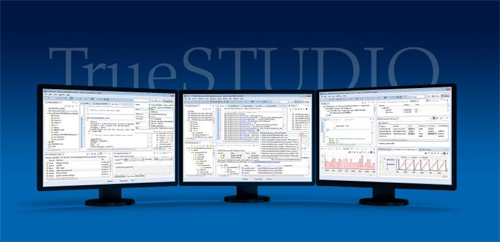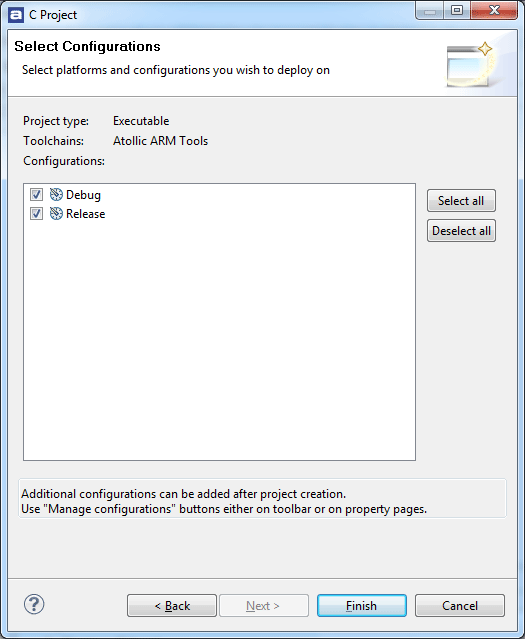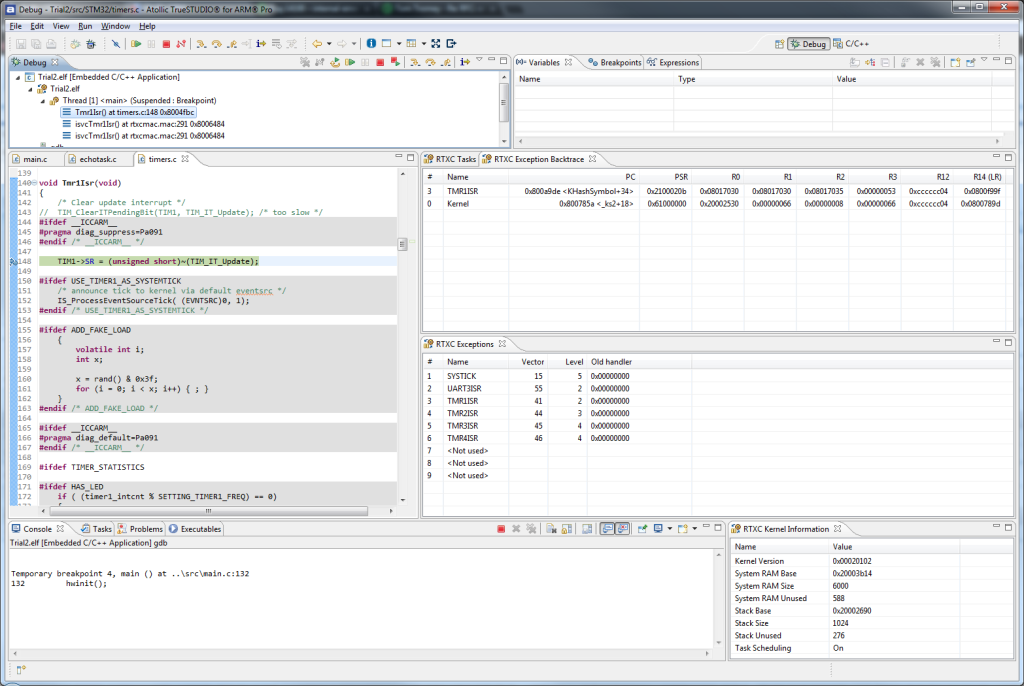
- ATOLLIC TRUESTUDIO DEBUGGING SERIAL
- ATOLLIC TRUESTUDIO DEBUGGING SOFTWARE
- ATOLLIC TRUESTUDIO DEBUGGING LICENSE
- ATOLLIC TRUESTUDIO DEBUGGING WINDOWS
The post TrueSTUDIO 5.4.2 is released appeared first on Atollic.


ATOLLIC TRUESTUDIO DEBUGGING SOFTWARE
Standard peripheral library and microcontroller software
ATOLLIC TRUESTUDIO DEBUGGING LICENSE
The post Atollic TrueSTUDIO 5.4.1 is released with support for USB dongle and floating license options appeared first on Atollic. The new Atollic TrueSTUDIO version can be downloaded here: See the readme file for detailed information about target support and additional product updates. To program the bootloader into the internal flash, the on-board ST-Link debugger interface was used.
ATOLLIC TRUESTUDIO DEBUGGING WINDOWS
The information outlined on this page applies to both Microsoft Windows and Linux users. Note that Atollic TrueStudio is cross-platform. Now if you press on the black arrow near the debug icon, see below. After the configuration, you must see a new menù for debug, see below. WINDOW -> PERSPECTIVE -> CUSTOMIZZE PERSPECTIVE.
ATOLLIC TRUESTUDIO DEBUGGING SERIAL
Segger J-Link debugger configuration now enables association of specific J-Link probe to specific debug configuration, using the J-Link serial number.Changes are now saved to all build configurations of the project Updated “Target Settings” tab in project properties.Improved and visually updated TrueSTUDIO License Manager.Added support for USB licenses based on new Atollic USB licenses keys.The main improvements in this version are: The primary purpose is to enable additional license models that were not included in TrueSTUDIO v.5.4.0. In Syscalls.Atollic has released Atollic TrueSTUDIO v.5.4.1.Add #include for your peripheral acces layer into Syscalls.c (stm32f4xx.h in my case).C/C++ Build -> Settings -> Tool Settings -> C++ Compiler -> Symbols -> add CPPUTEST_STD_C_LIB_DISABLED.C/C++ Build -> Settings -> Tool Settings -> C++ Linker -> Libraries -> add "CppUTest".C/C++ Build -> Settings -> Tool Settings -> C++ Linker -> Library search path ->.Select your debugging tool (ST-LINK in my case).Check Generate system calls file (enable I/O.File -> New -> C++ Project -> Embedded C++ Project -> Embedded C++ Library (I have named my project CppUTestTest).


C/C++ Build -> Settings -> Tool Settings -> C++ Compiler -> General -> C++ standard -> gnu++98.C/C++ Build -> Settings -> Tool Settings -> C++ Compiler -> Symbols -> add CPPUTEST_STD_CPP_LIB_DISABLED.C/C++ Build -> Settings -> Tool Settings -> C++ Compiler -> Directories -> add /include.In your library's src folder edit IEEE754ExceptionsPlugin.cpp line 31 so it looks like this: #ifdef CPPUTEST_USE_FENV (this turns off support for floating-point enviroment).Open the UtestPlatform.cpp you have just copied and substitute the lines 259-288 with lines 198-218 from src/Platforms/Keil/ UtestPlatform.cpp (this makes all mutex functions just dummies).From CppUTest root directory: Copy src/Platforms/Gcc/ UtestPlatform.cpp to your library's src folder.From CppUTest root directory: Copy all sourcefiles from src/CppUTest and src/CppUTestExt to your library's src folder.Uncheck "Disable C++ exception handling".Select your target hardware (STM32F401RE in my case).File -> New -> C++ Project -> Static Library -> Embedded C++ Library.Git clone the latest CppUTest release ( ).


 0 kommentar(er)
0 kommentar(er)
